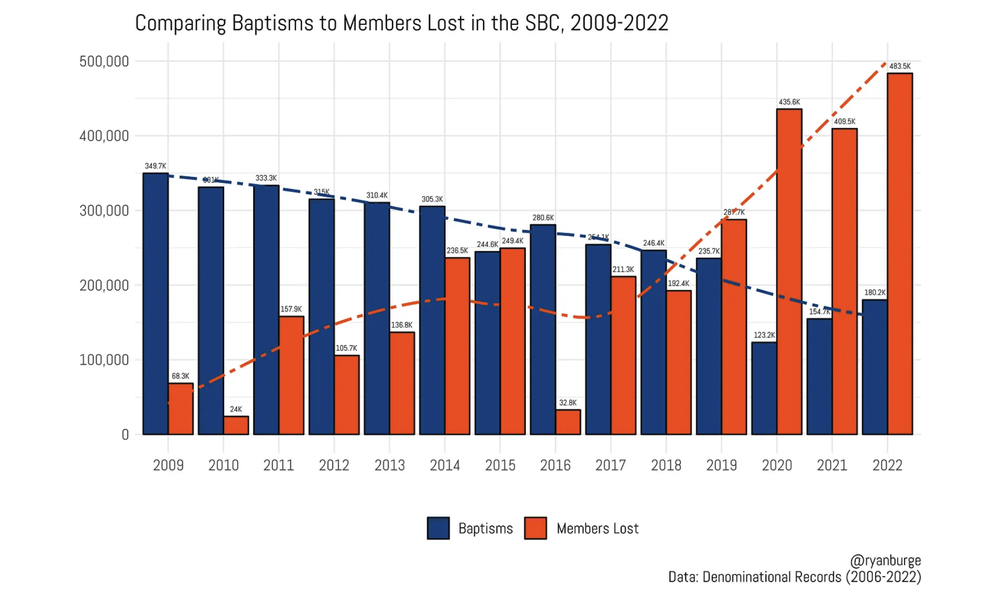There was a time when the Southern Baptist Convention was the envy of nearly every other denomination. The doctrine was not the envy but the uniformity in what was believed was. The politics was not the object of this envy but the growth was. While other denominations struggled to add members, the SBC seemed to increase its membership magically and without much effort. Of course, that was not quite true, but nearly every other Christian communion was jealous of the way these Baptists grew -- even to the point of trying to emulate their programs and ideals. No more.
The decline of the SBC is occurring at a rate and on a scale that no one had expected and no other Protestant denomination has experienced in American history. According to one statistical survey, the SBC had a pattern of adding a million new members (decisions and baptisms) every five years from 1946-1981. Then it took 8 years to add the next million and 11 years to add the last million before the decline began. The number crunchers reported 16.3 million members in 2006. Five years later it had dropped to about 14 million. As of the 2022 report, it has dropped to 13,196,979 -- the same size the SBC was in 1978.
In 2012, there were 3 baptisms for every member lost. In 2022, there were 2.7 members lost for every baptism.Now for the surprise. The states with the most baptisms per current member are not in the South but in strange places like Montana, Iowa, the Dakotas, and New England -- even New York.
Covid? Yes, perhaps. But there is something far more here than just the lingering effects of the pandemic. The SBC is bleeding off people by the thousands of members to nondenominational evangelical churches.
It could be said that the biggest threat to denominations like the SBC are not other denominations or the politics or the doctrine of their churches but the nones and the nons -- in other words the very same things that are affecting all Christian denominations.While some are spending their time focusing on the statistics, it might be worth noting that amid all these stories of decline and the loss of a once Christian Europe, for example, there are converts who are not interested in the statistics of the past or the comfort in numbers that Christianity once used to console itself but in real answers and real transcendence. They were not raised in the faith but were drawn to Christianity while looking for a source of authority, for a sense of real community, and a sense of hope.


No comments:
Post a Comment